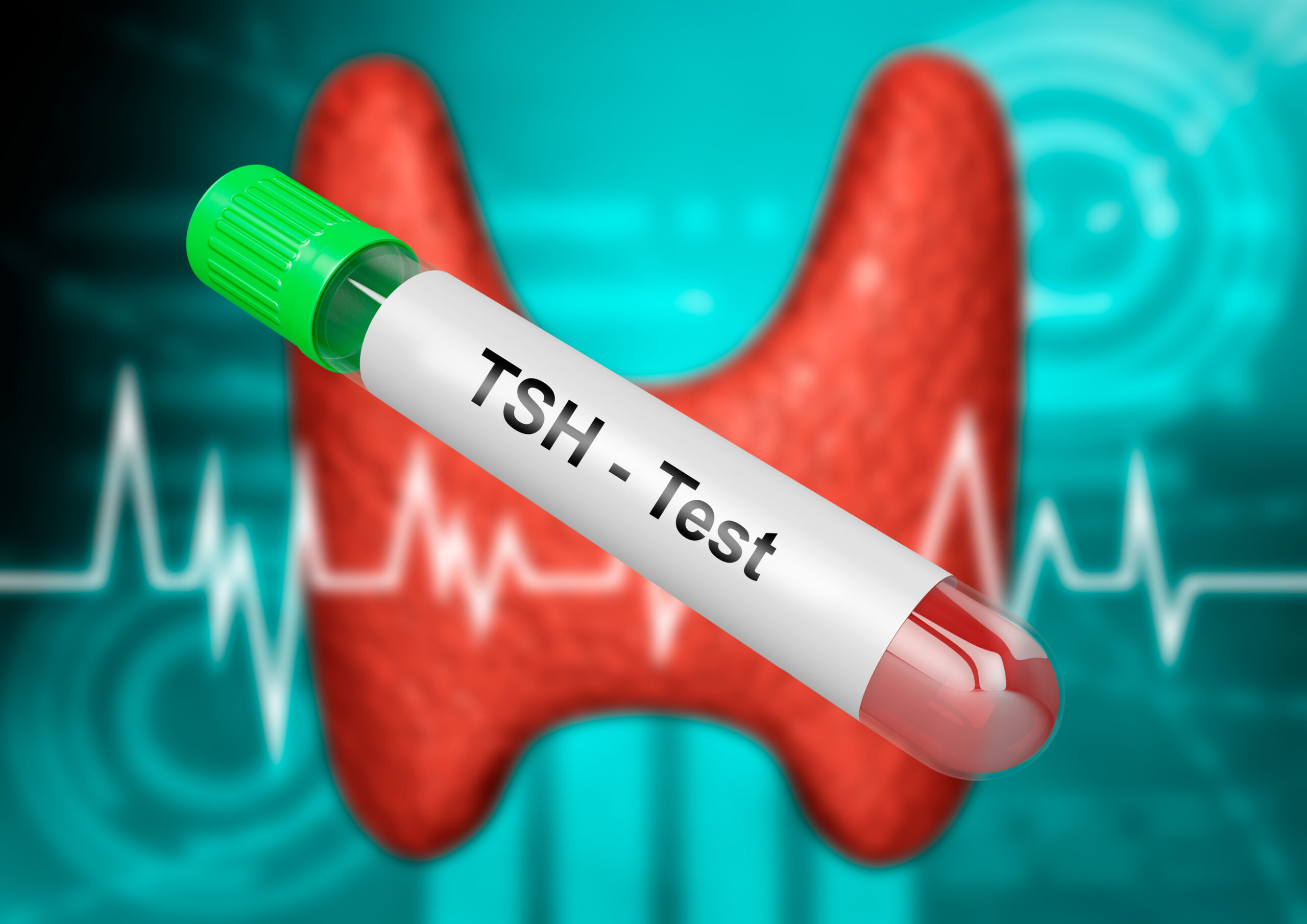Your thyroid is the powerhouse behind your energy, metabolism, and overall well-being. A Thyroid Stimulating Hormone (TSH) test is key to understanding how well this vital gland is functioning and detecting potential issues early.
Whether you’re noticing symptoms like fatigue or just taking charge of your health, this simple test can offer critical insights. Read on to discover why the TSH test matters and how it can guide you toward better thyroid health.
What is a Thyroid Stimulating Hormone (TSH) Test?
A TSH test measures the level of thyroid-stimulating hormone in your blood. Produced by the pituitary gland, this hormone acts as a signal between your brain and thyroid gland to keep thyroid hormone production balanced.

Why does this matter? Thyroid hormones control essential functions like metabolism, energy, hair health, and mood.
This test isn’t just routine—it can help detect early signs of underactive thyroid (hypothyroidism), overactive thyroid (hyperthyroidism), or other conditions like thyroiditis that may impact your health.
Understanding Your Body’s Master Regulator: The Thyroid
Small but mighty, your thyroid is a powerhouse gland that plays a vital role in your overall well-being. It regulates essential functions like metabolism, energy levels, and even mood, making its health absolutely critical.
The Thyroid’s Role and Why It Matters
Located in your neck and shaped like a butterfly, the thyroid may be small, but its influence on your body is immense. This gland produces two key hormones—T3 (triiodothyronine) and **T4 (thyroxine)**—that are essential for managing metabolism, growth, and development.
The Connection Between TSH and Thyroid Hormones
Think of TSH (thyroid-stimulating hormone) as the body’s thermostat for thyroid activity. When levels of T3 and T4 drop too low, the pituitary gland steps in, releasing more TSH to prompt the thyroid to ramp up hormone production. Conversely, when T3 and T4 are too high, TSH levels decrease to restore balance.
A blood test is often used to measure hormone levels, including TSH, free T3, and T4, to ensure your thyroid is functioning properly. When this delicate system becomes disrupted, it can signal a thyroid disorder. That’s why understanding and monitoring your TSH levels is a crucial step in safeguarding your overall health and well-being.
Why a TSH Test Is Important in Singapore?
Symptoms like unexplained weight changes, fatigue, cold sensitivity, or mood swings can signal thyroid issues. A TSH test is a reliable way to check for conditions like hypothyroidism, hyperthyroidism, or autoimmune disorders like Hashimoto’s thyroiditis and Graves’ disease.

Your thyroid impacts many areas of health, including the heart, reproduction, and mental focus. Hormone imbalances can affect multiple systems, so keeping your thyroid in check is essential.
What Happens During a TSH Test?
The TSH test is a simple blood draw that’s quick and minimally invasive. A healthcare professional will collect a small sample from your arm, and the lab will analyze your TSH levels. No fasting is required, making it a convenient addition to your health screening routine.
Who Should Consider Taking a TSH Test?
- Individuals With Symptoms of thyroid issues such as fatigue, unexplained weight gain or loss, or changes in body temperature.
- Women Trying to Conceive as thyroid function can significantly impact fertility and pregnancy.
- People With Family History of thyroid disorders.
- Adults Over 35 as the risk of thyroid imbalances increases with age.
Interpreting TSH Test Results
Understanding your TSH test results is crucial for managing thyroid health and ensuring optimal well-being. A TSH test stimulates the thyroid to determine how well it is functioning and measure thyroid hormone levels.
What Do High or Low TSH Levels Mean?
- High TSH Levels: This often indicates hypothyroidism, where the thyroid is underactive and doesn’t produce enough hormones. Symptoms may include fatigue, depression, and sensitivity to cold. High TSH can indicate a thyroid that is not producing sufficient hormones.
- Low TSH Levels: This may signal hyperthyroidism, where the thyroid is overactive and produces too many hormones. Common symptoms include rapid heartbeat, weight loss, or anxiety. A thyroid function test can confirm if thyroid hormone levels are elevated.
Understanding Variations Specific to Singaporeans
Interestingly, thyroid health in Singapore has its own nuances. Factors such as diet (including iodine-rich foods like seafood), stress levels, and environmental exposure could influence your thyroid’s performance.
Thyroid Health in Singapore
Based on my clinical experience, hypothyroidism and thyroiditis are the most frequently observed thyroid conditions here. Graves’ disease, while less common, still affects a significant portion of the population.
Lifestyle Factors Influencing Thyroid Function
- Diet: Watching iodine intake is essential, as both excess and deficiency can lead to thyroid dysfunction.
- Stress Management: Chronic stress can disrupt hormone balance, including TSH levels.
- Regular Screenings: Including a TSH test in your annual health check-up is a proactive way to catch issues early.
Where to Get TSH Testing?
Mediway Medical offers convenient and reliable TSH testing as part of our comprehensive diagnostic services. Our expert team ensures precise results with a fast turnaround, giving you the insights you need to effectively manage your thyroid health.

TSH Testing in Our Health Screening Packages
At Mediway Medical, the Thyroid Stimulating Hormone (TSH) test is included in our Premium package ($300) and Prestige package ($550). Both options provide comprehensive evaluations, with the TSH test assessing thyroid health and detecting imbalances. Choose a package for a thorough, personalized health assessment.
(Prices listed are accurate as of July 15, 2025, and are subject to change without prior notice.)
Caring for Your Thyroid Health
Your thyroid is small but mighty, playing a critical role in keeping your body functioning smoothly. A TSH test offers a simple way to stay proactive and safeguard your overall health.
Remember, early detection is the key to effective treatment. If you’re ready to take charge of your thyroid health, book an appointment at Mediway Medical today. Together, we can ensure your health and well-being remain balanced and thriving.









